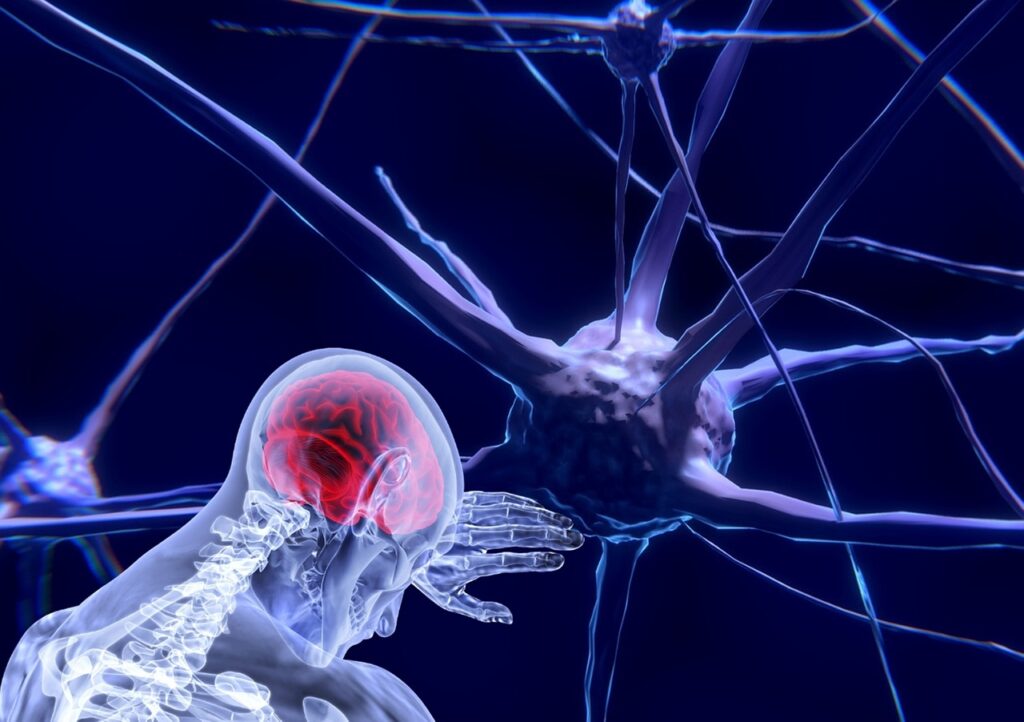Neuroscience & Hypnotherapy
Neuroscience
The integration of hypnotherapy with neuroscience can offer a promising approach that combines psychological techniques with an understanding of brain function. Here are some potential benefits of merging hypnotherapy with neuroscience:
Insight into Brain Function
Insight into Brain Function: Neuroscience provides a scientific understanding of brain structures and functions. Combining this knowledge with hypnotherapy techniques allows therapists to tailor interventions based on a deeper understanding of how the brain processes information, emotions, and behaviors.

Targeted Interventions
Targeted Interventions: Neuroscientific insights can help hypnotherapists develop more targeted interventions. By understanding the neural mechanisms underlying certain behaviors or conditions, therapists can tailor hypnotic suggestions and techniques to effectively address specific neural pathways or patterns associated with these issues.

Neuroscience
Enhanced Therapeutic Outcomes: Integrating neuroscience with hypnotherapy may improve therapeutic outcomes. By leveraging knowledge about brain plasticity and neural pathways, therapists can design interventions to potentially create lasting changes in neural circuits, leading to more effective and sustainable results.
Neuroscience

Stress and Anxiety Management
Stress and Anxiety Management: Understanding the neural correlates of stress and anxiety can help in developing hypnotherapeutic techniques aimed at modulating brain regions associated with these conditions. This fusion might offer more efficient strategies for relaxation, stress reduction, and anxiety management.

Behavioral Change and Habit Formation
Behavioral Change and Habit Formation: Neuroscience sheds light on how habits are formed and how they can be modified. By integrating this knowledge with hypnotherapy, therapists may assist clients in rewiring neural pathways associated with unhealthy habits, promoting behavioral change and the formation of healthier patterns.

Pain Management
Pain Management: Neuroscience insights into pain perception and modulation can be integrated into hypnotherapy for pain management. Techniques derived from an understanding of neural mechanisms involved in pain processing can potentially enhance hypnotic interventions for reducing pain perception.

Increased Acceptance and Credibility
Increased Acceptance and Credibility: Integrating neuroscience into hypnotherapy can enhance its acceptance and credibility among individuals who are more inclined toward scientifically-grounded approaches. Understanding the neurological basis of hypnosis may make it more accessible and acceptable to a broader audience.

Personalized Interventions
Personalized Interventions: Neuroscientific advancements allow for a more personalized approach to therapy. By considering individual brain differences and responses to hypnotherapy techniques, therapists can tailor interventions to suit the unique needs and neural profiles of each client.

Advancements in Research and Development
Advancements in Research and Development: The fusion of hypnotherapy with neuroscience can encourage further research and development in both fields. It may lead to new discoveries about the brain and its relationship with consciousness, paving the way for innovative therapeutic approaches.
The integration of hypnotherapy and neuroscience represents a promising frontier in mental health and behavioral sciences. This fusion can provide a more comprehensive and evidence-based approach to therapy, potentially leading to more effective interventions and better outcomes for individuals seeking psychological support and personal growth.
Exploring Mind-Body Connections
Holistic neuroscience is an interdisciplinary field that delves into the intricate relationship between the mind, body, and brain. It combines principles from neuroscience, psychology, philosophy, and various alternative healing practices to understand how these elements interact and influence one another. By integrating conventional scientific approaches with holistic perspectives, it seeks to offer a comprehensive understanding of human cognition, behavior, and overall well-being.
Key Concepts

Mind-Body Connection: Holistic neuroscience explores the bidirectional relationship between mental processes and bodily functions. It investigates how thoughts, emotions, and experiences impact the physical body, and vice versa.
Neuroplasticity and Healing: The field examines the brain’s remarkable ability to adapt and reorganize itself, known as neuroplasticity. This concept plays a crucial role in understanding how holistic practices such as meditation, mindfulness, and alternative therapies can potentially influence brain structure and function to promote healing.
Integrative Approaches: Holistic neuroscience emphasizes the integration of diverse perspectives and practices, combining traditional neuroscience research with complementary and alternative therapies. This integrative approach aims to provide a more comprehensive understanding of the complexities of the human mind and body.
Whole-Person Health: Rather than focusing solely on symptoms or specific areas of the brain, holistic neuroscience considers the individual as a whole. It acknowledges the interconnectedness of various aspects of life—physical, emotional, social, and spiritual—and their collective impact on health and well-being.

Areas of Exploration
Meditation and Brain Function: Investigating how different meditation practices affect brain activity, cognition, and emotional regulation.
Mindfulness and Stress Reduction: Studying the impact of mindfulness techniques on the brain’s stress response and overall mental health.
Alternative Therapies and Neurological Health: Exploring the potential benefits of alternative therapies such as acupuncture, yoga, and herbal medicine on neurological disorders and brain health.
Consciousness Studies: Examining the neural correlates of consciousness and exploring the relationship between brain activity and subjective experience.
Research and Applications
Holistic neuroscience research has significant implications across various fields:
Clinical Psychology: Informing therapeutic interventions for mental health disorders by incorporating holistic approaches.
Neurology and Rehabilitation: Exploring alternative methods to aid in neurological recovery and rehabilitation after injuries or strokes.
Education and Mindfulness Practices: Implementing mindfulness techniques in educational settings to improve learning, attention, and emotional regulation.
Conclusion
Holistic neuroscience offers a multifaceted approach to understanding the complexities of the mind-body connection. By integrating scientific inquiry with holistic perspectives, it aims to broaden our comprehension of human consciousness, health, and well-being. Exploring this dynamic relationship between the brain and holistic practices holds promise for innovative therapies and a more comprehensive approach to human flourishing.
Explore our website to delve deeper into the fascinating world of holistic neuroscience, where science meets spirituality and traditional wisdom converges with modern research.


